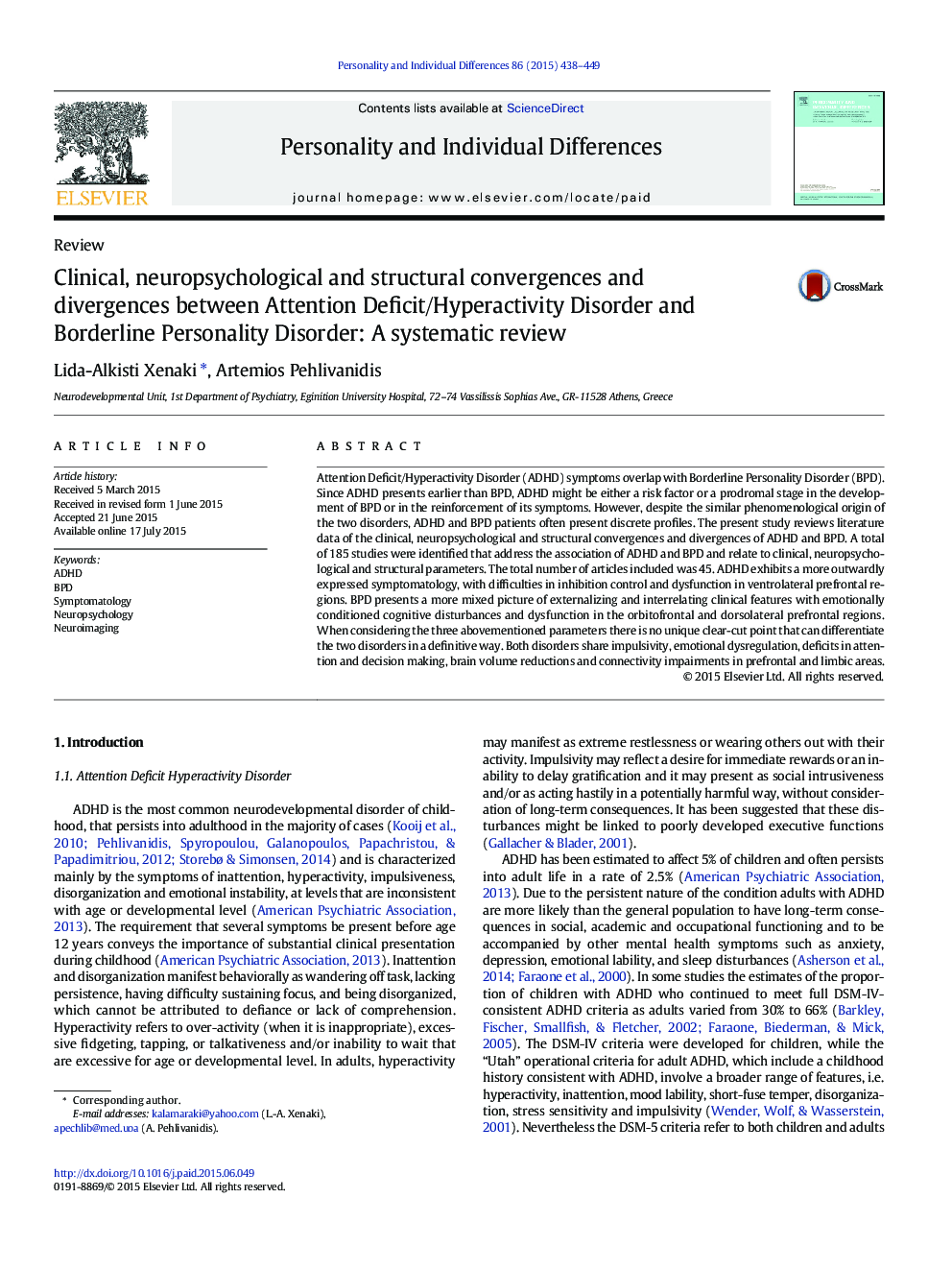| Article ID | Journal | Published Year | Pages | File Type |
|---|---|---|---|---|
| 889946 | Personality and Individual Differences | 2015 | 12 Pages |
•The study reviews clinical, neuropsychological and structural data of ADHD and BPD.•Clinically there is a differentiation between the two disorders.•Cognitive disturbances are more emotionally conditioned in BPD than in ADHD.•Anatomical dysfunction affects mostly prefrontal areas in both ADHD and BPD.•Considering all three parameters no clear-cut point differentiates the two disorders.
Attention Deficit/Hyperactivity Disorder (ADHD) symptoms overlap with Borderline Personality Disorder (BPD). Since ADHD presents earlier than BPD, ADHD might be either a risk factor or a prodromal stage in the development of BPD or in the reinforcement of its symptoms. However, despite the similar phenomenological origin of the two disorders, ADHD and BPD patients often present discrete profiles. The present study reviews literature data of the clinical, neuropsychological and structural convergences and divergences of ADHD and BPD. A total of 185 studies were identified that address the association of ADHD and BPD and relate to clinical, neuropsychological and structural parameters. The total number of articles included was 45. ADHD exhibits a more outwardly expressed symptomatology, with difficulties in inhibition control and dysfunction in ventrolateral prefrontal regions. BPD presents a more mixed picture of externalizing and interrelating clinical features with emotionally conditioned cognitive disturbances and dysfunction in the orbitofrontal and dorsolateral prefrontal regions. When considering the three abovementioned parameters there is no unique clear-cut point that can differentiate the two disorders in a definitive way. Both disorders share impulsivity, emotional dysregulation, deficits in attention and decision making, brain volume reductions and connectivity impairments in prefrontal and limbic areas.
